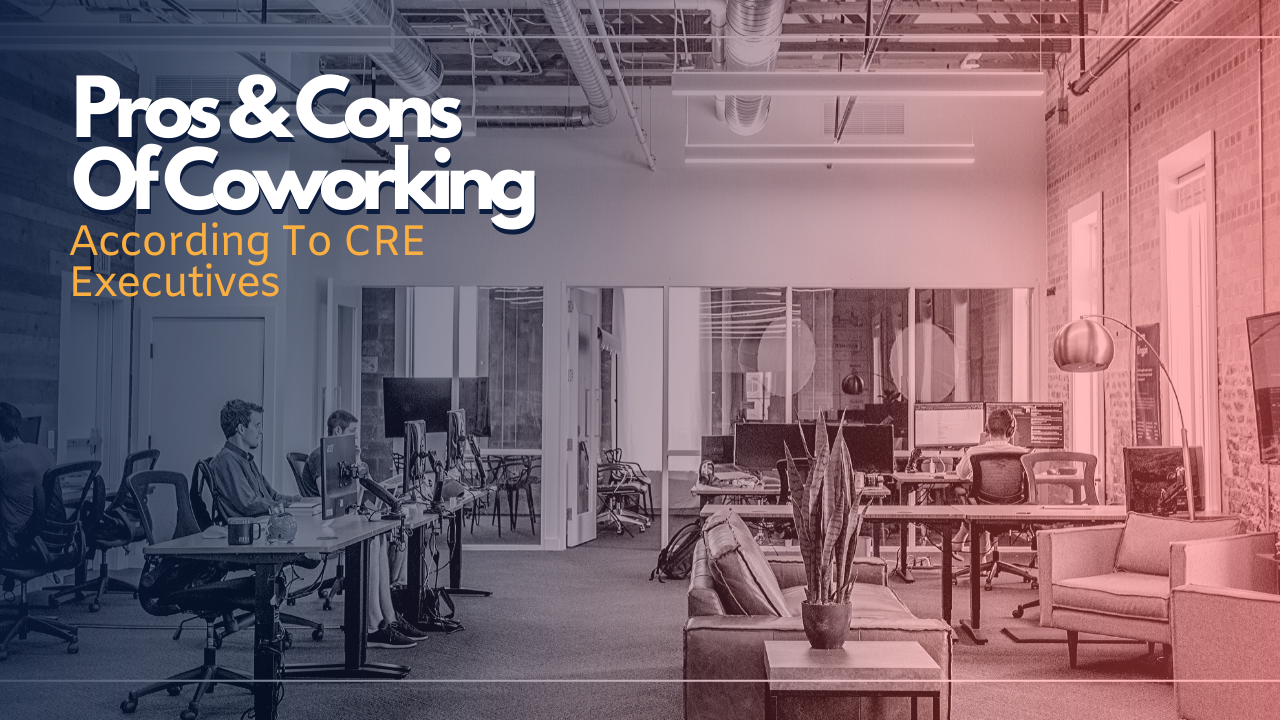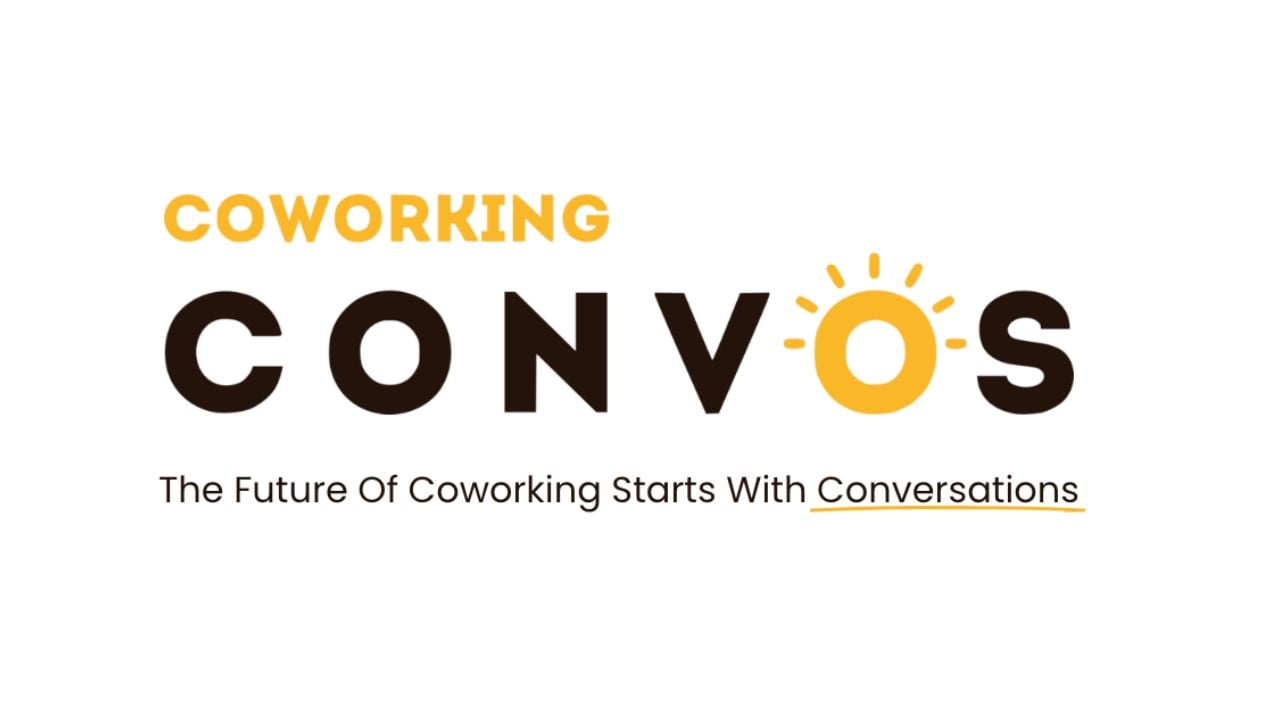- According to a new report from Cushman & Wakfield, in collaboration with CoreNet, the traditional CRE sector is viewing coworking in a more favorable light.
- However, the report highlights the need for more clarity in the definition of coworking vs flexible workspace.
- Executives acknowledge that flexible space reduces costs and supports talent acquisition, but key concerns include digital security, company culture cohesion, and personal privacy.
Cushman & Wakefield, in collaboration with CoreNet, recently published its 2019 survey results. The report, “CRE Executive Perspectives on Coworking and How and Why the Flexible Workplace Matters” delves into CRE executives’ opinions of, and experiences with, the fast-growing flexible workspace sector.
Cushman & Wakefield estimates that there are around 125 million square feet of coworking, with 50 million sq ft located in the United States alone. The report also notes that traditional real estate firms (investors and services firms) are increasingly entering the sector in order to provide direct flexible space solutions to their clients.
Suggested Reading: “The Top 5 Ways CRE Is Crossing into the Coworking Industry”
“This model has been embraced by much of the corporate real estate (CRE) community and is serving a diverse clientele, long comprised of a mix of global enterprises alongside small and medium firms.”
And while it is clear that coworking is becoming more widely used and more positively viewed by the CRE community, the report highlights the need for more clarity and specificity in defining coworking vs flexible workspace.
“This lack of clarity and specificity in defining the services provided by coworking and flexible workplace providers can impact how the sector is perceived, as can misunderstandings regarding costs and the value proposition offered, the prioritization of company culture and employee experience, and varied concerns associated with connectivity and digital security.”
Key Stats from the Report
- 63% of global organizations are currently utilizing coworking across their portfolio.
- 57% of corporate real estate executives have a positive or very positive view of coworking.
- 34% of respondents reported that real estate costs decreased by more than 5%.
- 20% of organizations experienced cost increases by more than 5%.
- Overall, companies have around 12% of their employees utilizing coworking on a regular basis.
- The median percentage of employees regularly working out of a coworking location went from 0% two years ago to 3% in 2019 and is expected to jump to 15% in five years.
- The percentage of employees using coworking space is expected to double (24%) over the next five years.
- Growth of the sector will be highest in APAC, with expected utilization hitting 25.2% in 2024, followed by the Americas (23.3%) and EMEA (21.7%).
- Organizations utilizing coworking across their portfolio report lower real estate costs as a percentage of revenue, 10.1% vs 10.3% two years ago.
Flexible Workspace Adoption: The Pros and Cons
According to the report, the main reasons why large organizations are increasingly utilizing coworking and flexible workspace include: increased flexibility, cost management, and talent attraction and retention. However, even among those companies already using coworking or flexible workspace, there remain key concerns, including digital security, company culture cohesion, and personal privacy.
One finding worth noting is that corporations that are currently utilizing coworking are significantly more likely to have a positive view of coworking when compared to companies that have not yet adopted this nascent sector. In fact, “respondents at corporations not currently utilizing coworking are nearly three times as likely to have a negative perspective of the sector.”
The opinion of coworking is also higher among companies where the sector has helped them lower CRE costs.
There are three main reasons why large corporates have, and continue to tap into, entry-level space-as-a-service:
- They use it as temporary space between traditional office moves (either when first opening an office in a new market or as part of an intra-market move).
- They use it as a landing spot for remote workers or employees who may need to move around the city depending on the day and who they’re meeting.
- They use it as incubator space where specific departments (like R&D) can benefit from networking with workers from outside of their company’s employee base.
The Pros
While flexibility and cost management are the top two main benefits across the surveyed regions, Cushman & Wakefield note that there are some variations within APAC and EMEA companies.
Companies in these two regions are also highly motivated by the networking opportunities offered by coworking and flexible workspace, while American companies highly value the fact that these types of spaces can help them attract and retain top talent.
Generally speaking, coworking is more likely to reduce costs (34%) than increase them (20%); this holds true despite the fact that price per square footage is typically higher in coworking spaces. According to the report, the reason for this is that “flexible workplace turnkey service agreement pricing accounts for upfront capital expenditures, monthly operating costs, technology, communications, utilities, food and beverage amenities, common spaces, and various elective services (i.e., facilities management, receptionist and/or concierge).”
On the other hand, traditional leases typically account only for rent, utilities, and janitorial services; the added factor is that companies need to calculate the number of employees that will be using the space in five, seven, or ten years. In other words, it does not allow for expansion and regression of employees on a variable basis, and the associated costs need to be taken into account.
Another key reason why costs are reduced is due to the fact that coworking locations average 100 square feet per member vs 190 square feet per employee in traditional office space.
The Cons
According to the report, “digital security is the most commonly cited potential downside in each region”. But this is much more common in EMEA, where 70% of respondents noted digital security as a top concern. Cushman & Wakefield does note that these concerns may be unfounded in some cases, as some flexible workspace providers offer privacy protection via dedicated VPNs, server rack space, and even FINRA compliance.
The other two highly cited downsides of coworking include decreased company culture and cohesion and personal privacy.
While coworking can help companies attract and retain top talent, many have noted that these spaces can have a negative impact on company culture, especially if the space is not customized to the company’s culture and branding, and also if employees are in the same space as workers from other companies. This makes it harder “to reinforce the brand and culture that is so important in maintaining company cohesion and a sense of purpose.”
The above is one of the main reasons why most large companies are more inclined to utilize flexible workspace rather than coworking. Flexible workspace provides occupiers with more control over the design and branding of the space as they typically require longer commitments than coworking memberships (yearly vs monthly agreements).
In the end, the main takeaway from the report is that flexible workspace and coworking matter. The sector is expected to continue to grow and disrupt the way people and companies utilize office space.

 Dr. Gleb Tsipursky – The Office Whisperer
Dr. Gleb Tsipursky – The Office Whisperer Cat Johnson – Coworking Marketing Maven
Cat Johnson – Coworking Marketing Maven Angela Howard – Culture Expert
Angela Howard – Culture Expert Drew Jones – Design & Innovation
Drew Jones – Design & Innovation Andrea Pirrotti-Dranchak – Competitive Advantage
Andrea Pirrotti-Dranchak – Competitive Advantage Jonathan Price – CRE & Flex Expert
Jonathan Price – CRE & Flex Expert Jeremy Fennema – Tech Innovation Alchemist
Jeremy Fennema – Tech Innovation Alchemist











